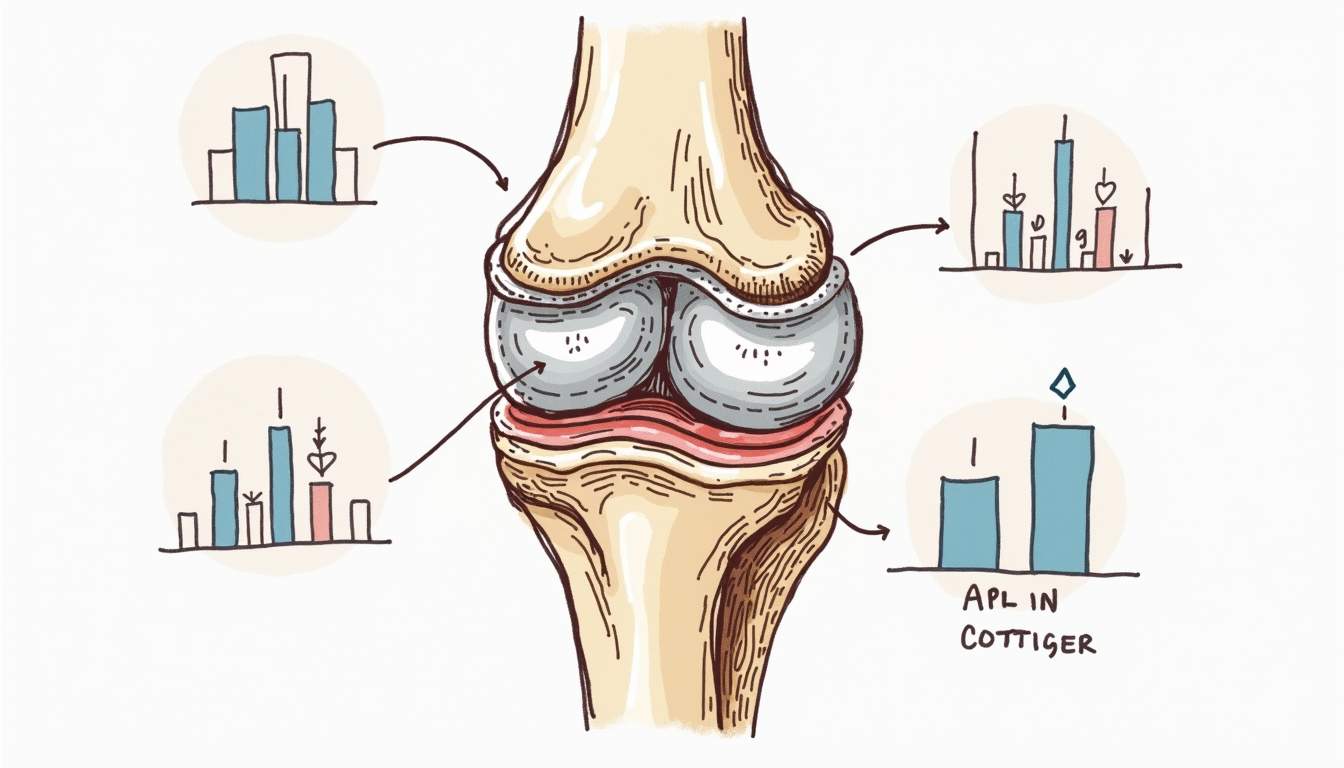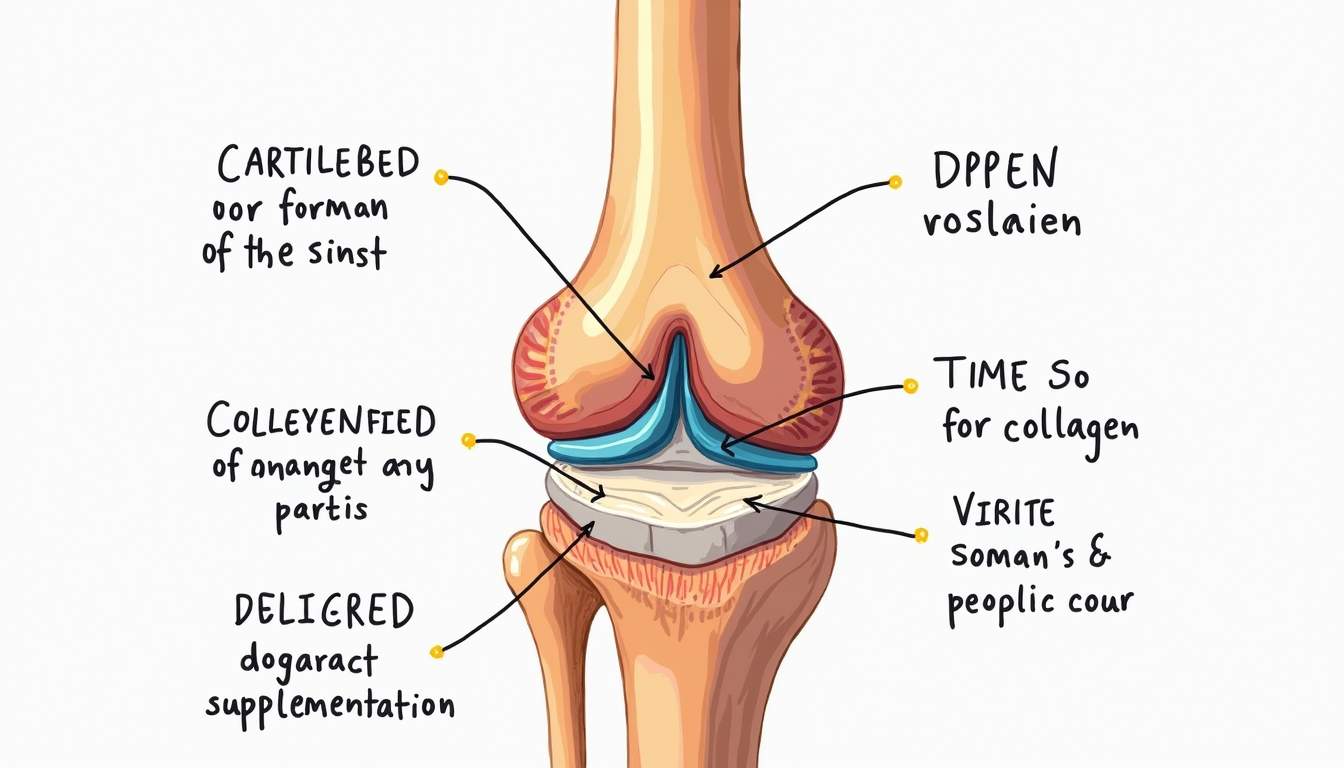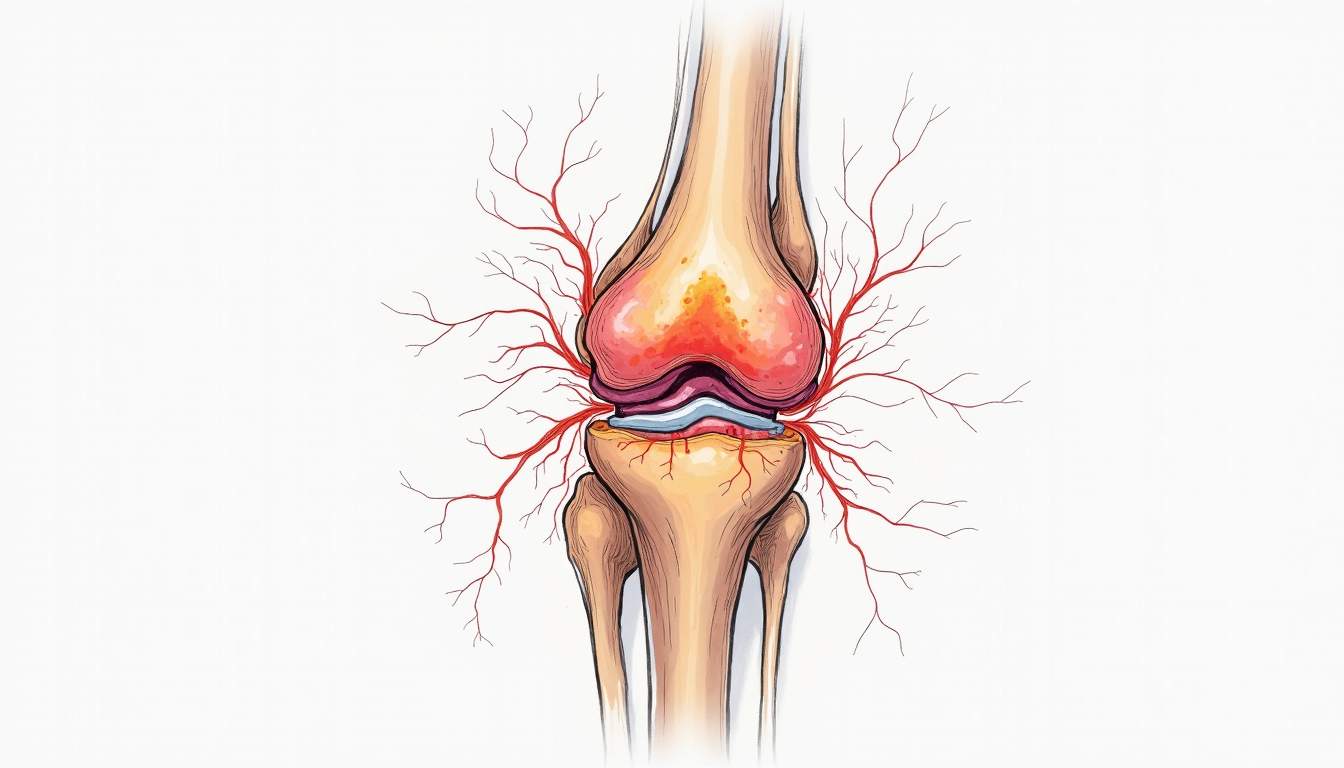Collagen has gained popularity in recent years as a potential remedy for various health issues, particularly joint pain and inflammation. As the most abundant protein in the body, collagen plays a crucial role in maintaining the structural integrity of joints, tendons, and ligaments.
This article delves into the relationship between collagen and joint health, examines scientific evidence surrounding collagen supplementation, and provides practical considerations for those interested in incorporating it into their health regimen.
Can collagen help with joint pain and inflammation?
Yes, studies suggest that collagen supplements—especially Type II collagen—may reduce joint pain and inflammation by supporting cartilage health and lowering inflammatory markers. Most people use 10–15 grams daily for relief, especially in osteoarthritis and aging-related joint issues.
Understanding Collagen and Joint Health
What is Collagen and How Does it Function in Joints?
Collagen is a fibrous protein that forms the building blocks of connective tissues in the body. It is primarily found in cartilage, bones, and skin, providing strength and elasticity. In joints, collagen serves as a critical component of cartilage, which cushions the ends of bones and facilitates smooth movement. The presence of collagen helps maintain joint stability and reduces friction during physical activity.
There are several types of collagen, with Type II collagen being the most prevalent in cartilage. This specific type is essential for joint health, as it helps to repair and regenerate cartilage tissue.
As individuals age or experience joint injuries, the natural production of collagen may decline, leading to increased wear and tear on the joints, which can result in pain and inflammation. Additionally, factors such as poor diet, lack of exercise, and certain medical conditions can further accelerate collagen depletion, making it vital to prioritize a lifestyle that supports collagen synthesis. Nutrients such as vitamin C, proline, and glycine play a significant role in collagen production, emphasizing the importance of a balanced diet rich in fruits, vegetables, and lean proteins.
The Relationship Between Collagen Depletion and Joint Pain
Collagen depletion is a common issue that can contribute to joint pain and inflammation. As collagen levels decrease, the structural integrity of cartilage diminishes, leading to conditions such as osteoarthritis. This degenerative joint disease is characterized by the breakdown of cartilage, resulting in pain, stiffness, and reduced mobility.
Moreover, the inflammatory response associated with joint degeneration can exacerbate discomfort. As collagen breaks down, the body may respond with inflammation, further aggravating pain. Understanding this relationship is crucial for those seeking to manage joint health effectively, as replenishing collagen may potentially alleviate some of these symptoms. In recent years, collagen supplements have gained popularity as a means to support joint health. These supplements, often derived from bovine or marine sources, can provide the body with the necessary building blocks to enhance collagen synthesis.
Preliminary studies suggest that regular intake of collagen peptides may improve joint pain and function, particularly in individuals suffering from osteoarthritis or athletic injuries. However, it is essential to consult with a healthcare professional before starting any supplementation regimen to ensure it aligns with individual health needs and goals.
Scientific Proof Collagen Helps Joint Pain and Inflammation
Clinical Studies on Collagen Supplementation for Osteoarthritis
Numerous clinical studies have investigated the effects of collagen supplementation on joint pain, particularly in individuals suffering from osteoarthritis. Research has shown that oral collagen supplements can improve joint function and reduce pain levels. A notable study published in the journal "Current Medical Research and Opinion" found that participants who consumed collagen hydrolysate experienced significant reductions in joint pain during physical activity compared to those who received a placebo.

Another study published in "The Journal of Agricultural and Food Chemistry" highlighted that collagen supplementation not only reduced pain but also improved joint mobility in individuals with osteoarthritis. These findings suggest that collagen may serve as a beneficial adjunct therapy for managing joint pain, particularly in older adults or those with degenerative joint conditions.
Furthermore, the mechanism behind these benefits may be attributed to collagen's ability to stimulate the production of cartilage and synovial fluid, which are crucial for joint lubrication and overall health. This is particularly important as the natural production of collagen decreases with age, leading to increased vulnerability to joint-related issues.
Research on Collagen's Anti-inflammatory Properties
In addition to its role in joint structure, collagen has been studied for its potential anti-inflammatory properties. Some research indicates that collagen peptides can modulate inflammatory responses in the body. For instance, a study published in "Nutrients" found that collagen supplementation reduced markers of inflammation in participants, suggesting that it may help mitigate the inflammatory processes associated with joint pain.
This anti-inflammatory effect can be particularly beneficial for individuals suffering from conditions like rheumatoid arthritis, where inflammation plays a central role in disease progression. While more research is needed to fully understand the mechanisms involved, the existing evidence points to collagen as a promising candidate for reducing inflammation and improving joint health.
Additionally, the synergy between collagen and other nutrients, such as vitamin C, which is vital for collagen synthesis, underscores the importance of a holistic approach to joint health. Incorporating a balanced diet rich in antioxidants and anti-inflammatory foods alongside collagen supplementation may further enhance its efficacy, providing a comprehensive strategy for those seeking relief from joint pain.
Are There Side Effects? Complementary Tips for Joint Relief
Types of Collagen Supplements and Recommended Dosages
Collagen supplements are available in various forms, including powders, capsules, and liquid. The most common types of collagen used in supplements are Type I, Type II, and Type III, each serving different purposes. Type I is primarily found in skin and bones, Type II is crucial for cartilage, and Type III supports the structure of skin and blood vessels.

For joint health, Type II collagen is often recommended. Dosages can vary, but many studies have utilized doses ranging from 10 to 15 grams of collagen per day. It is advisable to follow the manufacturer's instructions or consult with a healthcare professional to determine the most appropriate dosage based on individual needs and health conditions.
Additionally, some users prefer collagen powders due to their versatility; they can be easily mixed into smoothies, soups, or baked goods, making it a convenient option for incorporating collagen into daily routines.
Potential Side Effects and Complementary Approaches
While collagen supplementation is generally considered safe, some individuals may experience mild side effects, such as digestive discomfort or allergic reactions, particularly if they have sensitivities to the source of collagen (e.g., fish, bovine, or chicken). It is essential to choose high-quality collagen supplements that are free from contaminants and additives. Furthermore, it may be beneficial to start with a lower dosage and gradually increase it to assess tolerance, especially for those new to collagen supplementation.
In addition to collagen supplementation, adopting a holistic approach to joint health can be beneficial. This may include maintaining a balanced diet rich in antioxidants, omega-3 fatty acids, and vitamins that support joint function.
Engaging in regular physical activity, practicing weight management, and incorporating anti-inflammatory foods can also contribute to overall joint health. Foods such as leafy greens, nuts, fatty fish, and berries are excellent choices that not only nourish the body but also help in reducing inflammation.
Moreover, hydration plays a crucial role in joint health, as water helps maintain the elasticity of cartilage and lubricates joints, making it an essential component of any wellness regimen.
In conclusion, collagen shows promise as a potential aid for managing joint pain and inflammation. While scientific evidence supports its benefits, individual responses may vary. It is essential to consider collagen supplementation as part of a comprehensive approach to joint health, combining it with lifestyle modifications and professional guidance for optimal results.
Support Your Joints with Hydrolyzed Collagen
If you’re looking for natural support for joint pain or inflammation, try our Hydrolyzed Collagen Peptides. Backed by research, they provide the essential building blocks your body needs to maintain healthy joints.
-
Type I and II collagen for full-spectrum support
-
Sourced from grass-fed bovine collagen
-
Mixes easily into water, coffee, or smoothies

Share:
Hydrolyzed vs Non-Hydrolyzed Collagen: Which Is Better for Skin, Absorption, and Results?
Is It Safe to Take Ashwagandha Daily? Side Effects, Dosage, and Long-Term Use